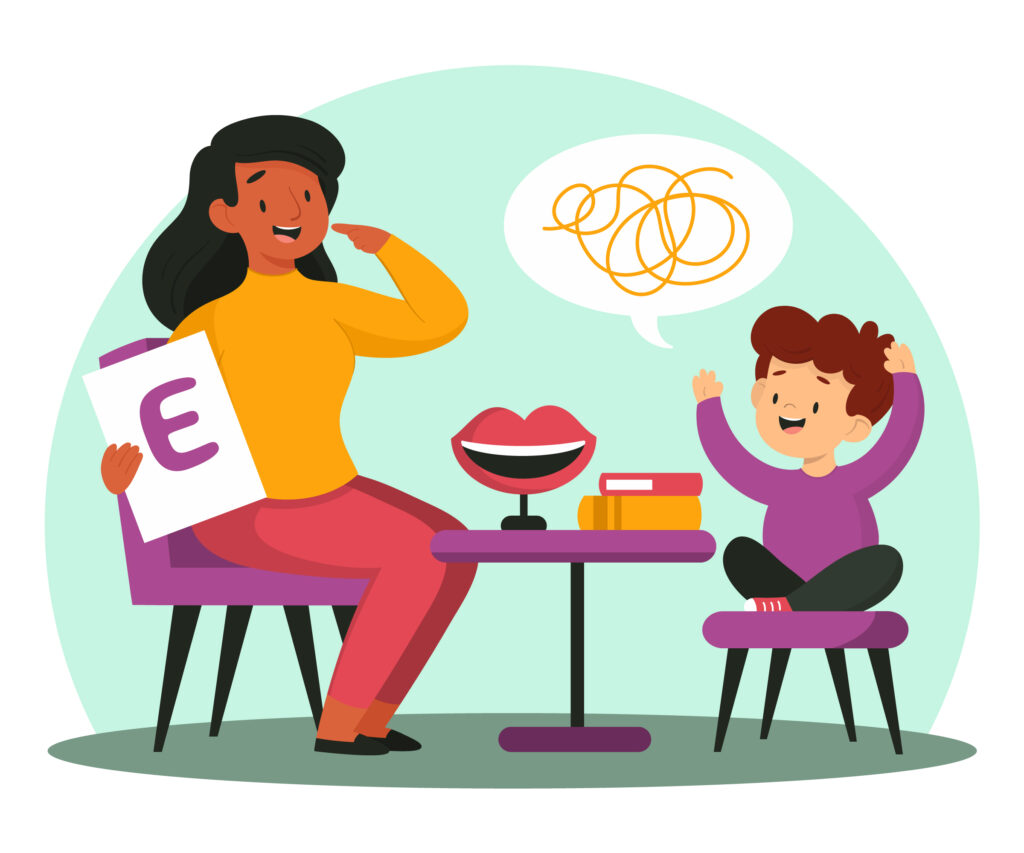“Cracking the Code of Speech and Language: Astonishing Truths You Must Discover”
This article talks about the importance of speech and language skills in communication and how speech and language problems can impact a child’s social and academic success. It highlights the importance of early intervention, identifying the underlying causes of speech and language problems, and the effectiveness of speech and language therapy
From infancy and throughout childhood, speech and language development are vital components of communication. They are essential for both social and academic development. Speech refers to the sounds we make. Language comprises the system of words, grammar, and rules used to convey meaning.
As children grow and develop, they acquire increasingly complex language skills. They learn to communicate through listening, observing, and imitating the people around them. With time, children become better at expressing themselves with greater clarity and precision.
However, some children may experience speech and language problems. These issues can interfere with their ability to communicate effectively. Speech and language problems can vary from trouble in producing specific sounds to difficulties in comprehending or using language. Early identification of these problems is crucial and prompt, so adequate treatment is necessary to address them. These problems can have a significant effect on a child’s social and academic achievements.

Unlocking the Complexity of Speech and Language Challenges: Key Considerations to Keep in Mind
- Early intervention is crucial: Identifying speech and language problems early and getting the right treatment can improve outcomes. Caregivers must know typical speech and language development stages and seek help if they worry about a child’s progress.
- Speech and language problems have various causes: Problems with speech and language can be caused by various factors, including hearing loss, developmental delays, neurological disorders, and injury. Identifying the underlying cause of a speech or language problem is important in developing an appropriate treatment plan.
- Communication is essential for social and academic development: Communication is a critical aspect of social and academic development. Children with speech and language problems may struggle to make friends, participate in classroom activities, and succeed academically.
- Therapy can be highly effective: Speech and language therapy is often the primary treatment for speech and language problems. A skilled therapist can develop a customized treatment plan based on the child’s individual needs and work with the child to improve their communication skills.
- Family involvement is key: Family involvement is an important aspect of speech and language therapy. There are several ways that parents and caregivers can support their child’s progress in speech and language therapy. One of the most important is by practicing communication skills at home. This means attending therapy sessions regularly, following the therapist’s suggestions for home practice, and communicating regularly with the therapist about the child’s progress. By working together with the therapist and practicing communication skills at home, parents and caregivers can play an active role in their child’s speech and language development and help them achieve their full potential. This can enhance the child’s progress and improve outcomes .
From Stuttering to Fluency: The Diverse Techniques Used by Speech Therapists to Enhance Verbal Communication
- Evaluation and diagnosis: A therapist conducts a thorough evaluation to assess a child’s communication abilities, determine the nature and severity of any problems, and provide a diagnosis if necessary.
- Individualized treatment plans: Based on the evaluation results, therapist can create an individualized treatment plan tailored to the child’s specific needs. This plan may include techniques, exercises, and activities to improve articulation and language skills.
- Articulation therapy: For children who struggle with pronouncing certain sounds, therapist can provide articulation therapy. This involves practicing specific sounds and using techniques to improve clarity and precision.
- Language therapy: Therapist can work with children who have difficulties with language comprehension and expression. This may involve building vocabulary, improving sentence structure, and developing conversational skills.
- Fluency therapy: For children who struggle with stuttering or other fluency disorders, therapist can provide fluency therapy. This may involve techniques to improve fluency and reduce disfluencies in speaking.
- Feeding and swallowing therapy: Some children with speaking and language problems may also have difficulties with feeding and swallowing. By working with a therapist, children can develop the necessary skills and strategies to overcome feeding and swallowing difficulties.
In short, a therapist plays a critical role in helping children with speaking and language disorder problems to improve their communication skills and achieve success in social and academic settings
How LMonk can help?
Language difficulty problems can vary in nature and severity with various causes. Our skilled therapist can diagnose and treat a wide range of disorders. With specialized knowledge and experience, she can develop customized treatment plans tailored to each child’s individual needs.
Moreover, our communication therapist not only works directly with the child, but also collaborates closely with families, teachers, and other healthcare providers. By taking a comprehensive approach to treatment, our therapist is able to address all aspects of the child’s communication challenges. As a result, the child receives consistent support and care across all environments, which can be critical for their progress. Additionally, this collaborative approach ensures that all stakeholders are involved in the child’s treatment plan, allowing for a more holistic and effective treatment outcome. By leveraging their expertise, they can help children with verbal communication problems to achieve their full potential and thrive in all areas of life.

